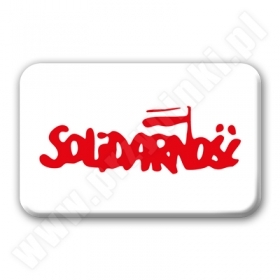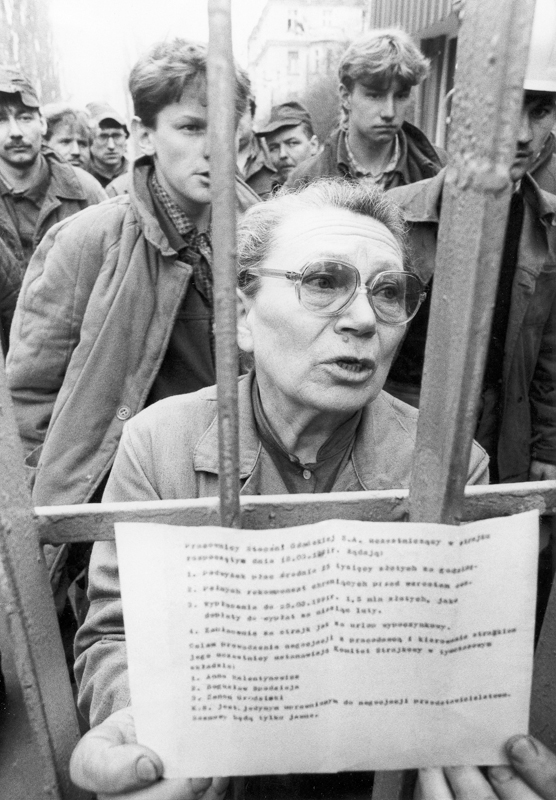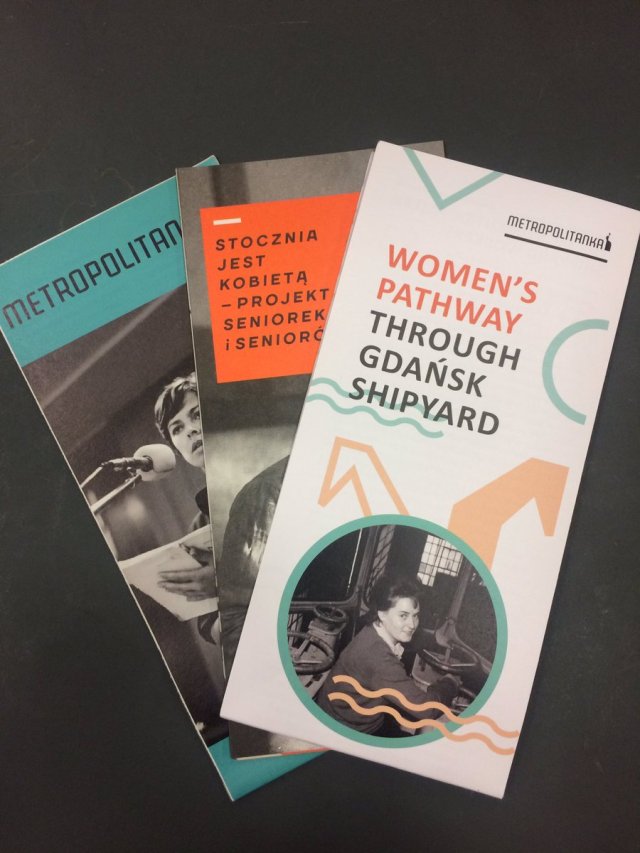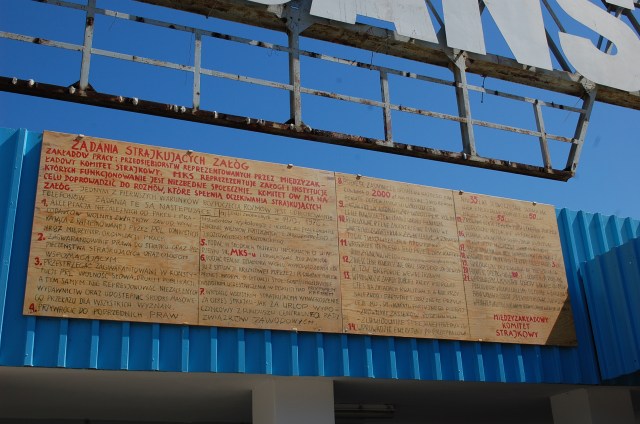
SOLIDARITY ACCORDING TO WOMEN
In 1981 riots broke out in Moss Side where I lived. It reflected the oppression experienced by the Afro-Caribbean people in that area; that they were discriminated against in housing, education and employment.
After the riots, people like me – a student living locally -joined the Moss Side Defence Committee. We raised money to support the many young people who had been given harsh sentences for sometimes taking part in the riots and sometimes for just being in the area.
One of the fundraising events was a social held in Hulme Labour Club and that night the actor Anthony Booth (actor) showcased his new band “Putsch”. They came on the stage dressed in paramilitary outfits and sang songs about the new free trade union in Poland called Solidarity that had challenged the Communist state.
Manchester’s trade union politics at that time were still dominated by the Communist Party, who were pro-Soviet and suspicious of Solidarity, but younger non-Communists identified with the new Polish trade union and it was common to see trade unionists wearing the iconic red badge.

Solidarity started in the huge Lenin shipyard of Gdansk. Today Gdansk is a hotspot for cheap flights from the UK for even cheaper weekends away. But it is more than a pretty town sitting on the side of the Baltic. It was where the Second World War began on 1 September 1939 and was home to my favourite writer, Gunter Grass.
The European Solidarity Centre, is a museum and library in Gdańsk, devoted to the history of Solidarity, the Polish trade union.
The ESC is an ugly building, made more human by the monument at the front of the building to shipyard workers shot down in 1970, and by the story told in the exhibition.
The story of Solidarity is an exciting and inspiring one, particularly if you believe that trade unions are crucial in creating a democratic society.
But the exhibition is dominated by mustachoied men in overalls and better off men in well-cut suits. The shipyard was not a male workplace; 50% of the workers were women who did the manual work as well as administration, healthcare and catering. The women did not get equal pay, even when doing some of the most dangerous work.
The strike in 1980 started because of one woman, Anna Walentynowicz, a veteran activist for free trade unions, who was rewarded for this by being sacked a few months before she was due to retire. But the shipyard workers refused to accept it and demanded that she should be reinstated. They won, and Anna alongside another mustachoied man, Lech Walesa, became a co-founder of Solidarity. The strike became more than just about one woman it evolved into a broader movement for a democratic society. After eighteen days strikes broke out across Poland and the Government conceded to Solidarity’s demands.

Anna
The women’s story is not told in the exhibition, but I found a leaflet that had been produced to put them back into the history of Solidarity: Women’s Pathway Through Gdansk Shipyard.

Women played more than a 50% role in the events that took place in 1980. They not only ran the strike committee, they produced publications about events, stood at the gates physically keeping people in the shipyard and in support of the strike, and were beaten, abused and imprisoned alongside the men and went into hiding for many years to avoid being put into prison.
The strike was not just about setting up free trade unions , but about other freedoms and there were 21 demands made by the strike committee which were written up on boards and displayed at the entrance to the shipyard. Workers demanded everything from a say in how the economy worked to childcare support.

21 Demands
In 1985 Anna said; “We must not wait passively. A free Poland is our aim, but no one will give us that freedom. Our passivity will result in their murdering more and more of us, in more and more people suffering. We must educate, because even when a free Poland is achieved, the nation will be so exhausted that there will be no one to lead it.”
The events of 1980 were part of a long historical struggle by the people of Poland for a democratic society. One that heightened after the Second World War and their forceful takeover by the Communist Party and their incorporation into the Soviet empire.
In Warsaw I met up with filmmakers Marta Dzido and Pytor Sliwowski. In their film “Solidarity According to Women ”(2016) by I found out the true story of the women’s involvement in the strike, the wider politics of Poland at that time and for me most importantly; what happened to the women in the days, weeks, months and years after the strike.
As Marta comments “After 16 interviews, I know that the women’s fight was no different from the men’s. The women were active, they had their political dreams although they never cared about being leaders of the trade union. Only one of them was invited to the Round Table discussions: Grażyna Staniszewska. After ’89 few women of the Solidarity movement decided to enter politics, which doesn’t mean that they gave up on being involved in the public sphere.”
The Solidarity women have almost completely been airbrushed from the official history of the strike and its afterward. This film was partly funded by the ESC but you cannot find it, or any reference to it in the Museum.
This is not surprising as life for women in Poland today under a right wing populist government is not easy. There is a counter movement and women are organising particularly over the threat to abortion rights. Marta and Pytor’s film is important history, it shows how women and men have always fought back against repression in Poland and hopefully will inspire present day generations that they can fight and win.
You can buy “Solidarity According to Women” here emotikonfilm@gmail.com
You can watch a documentary film about Anna Walentynowicz on youtube here
Excellent post
Reblogged this on Anarchy by the Sea!.
How much is the film?
Reblogged this on Wessex Solidarity.